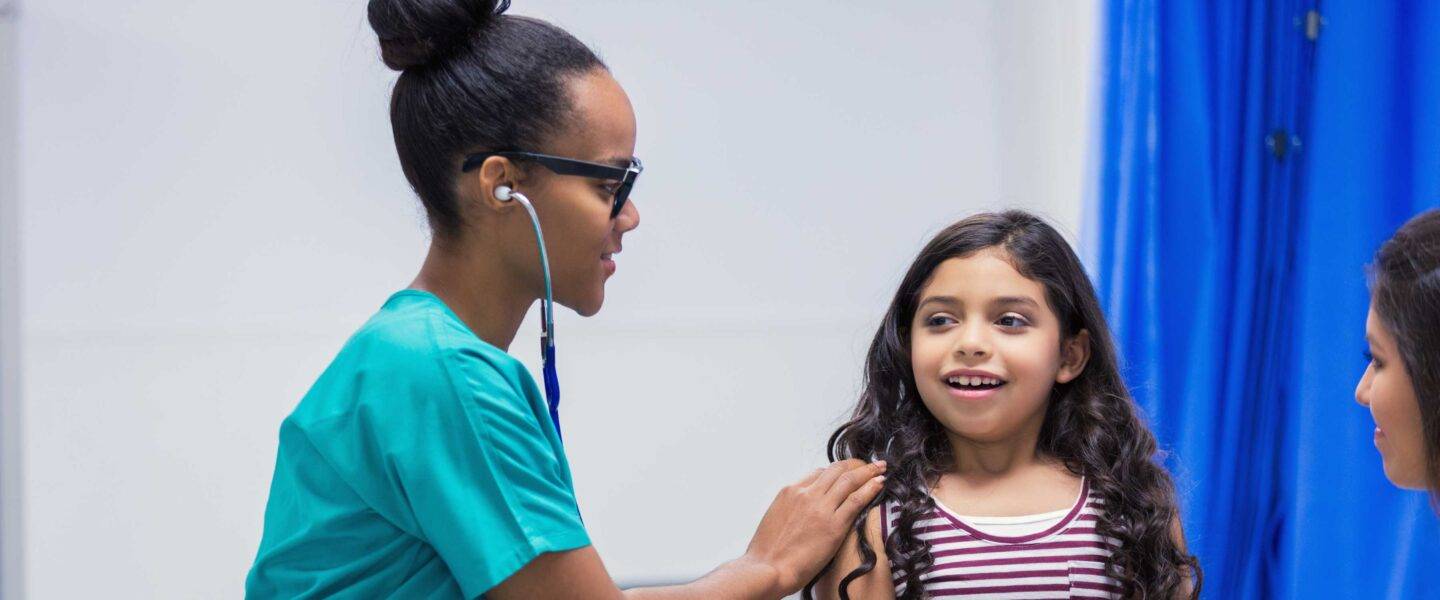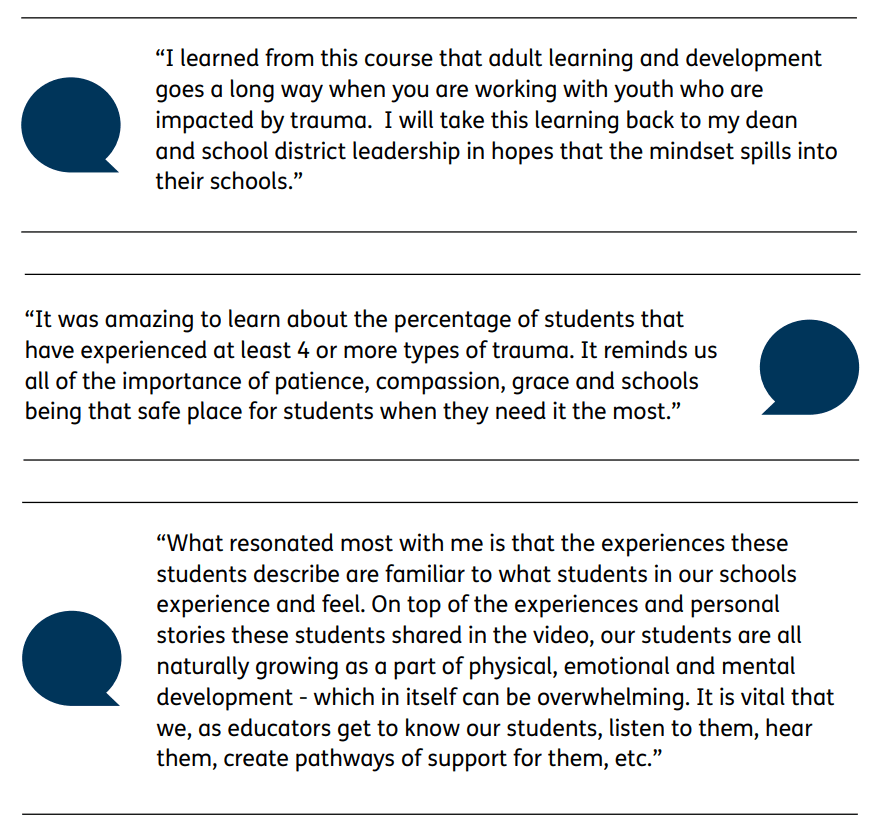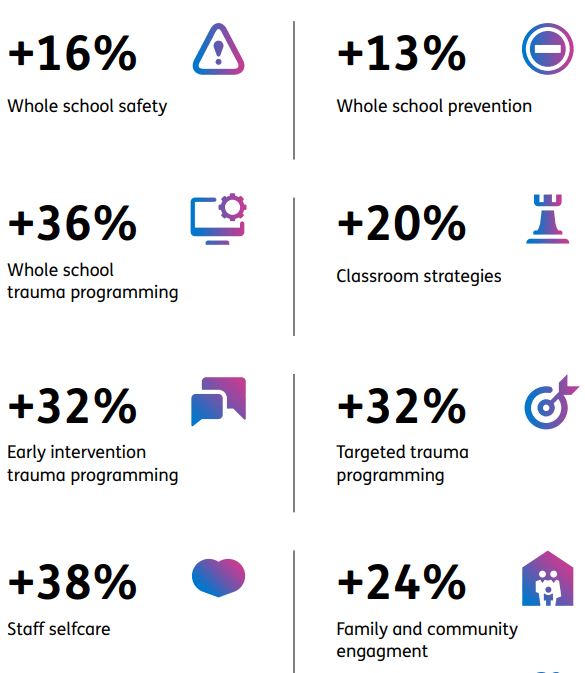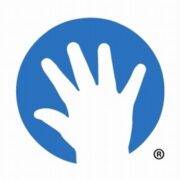
Lurie Children’s Hospital
REACHing those in need through learning delivery with the Learning Pool Platform.
Background
Since 2004, the Center for Childhood Resilience (CCR) at Lurie Children’s Hospital has worked to build the resilience of children and youth with a focus on under-resourced and under-represented populations throughout Chicago. Through innovative, sustainable, culturally attuned and evidence-based learning strategies, the Center for Childhood Resilience and Lurie Children’s Hospital engages schools, school districts and other youth-serving organizations in the state of Illinois through a public health approach to address the impact of trauma on students and educators, and promote mental health and wellness through the REACH project and its Learning and Resource Hub.
Challenge
In 2019 the CCR’s early efforts at expansion were going well, with a live platform in place for sharing PowerPoint presentations and recordings, and ongoing research into possible avenues for expansion.
But with the advent of the COVID-19 crisis, suddenly the CCR needed to turbocharge that expansion. Federal funding was routed to the CCR along with a new mandate: to service the needs of the entire state of Illinois – nearly 4,000 schools representing 1.9 million students across 853 districts.
4,000 schools
1.9 million students
853 districts
Solution
The Resilience Education to Advance Community Healing (REACH) initiative was the result; a partnership between the CCR and the Illinois State Board of Education that aimed to expand CCR services to support students and school staff state wide. Given the severity and urgency of this mental health crisis, steady, organic expansion was not an option; the CCR needed to scale at pace.
REACH provides virtual learning experiences to educators, school mental health professionals and community members on a number of topics related to trauma-responsive schools, including the signs and symptoms of trauma and the intersection of trauma, racism and equity.
Objectives
Goal 1: Increase access to training and information on trauma-responsive practices for educators across Illinois state to advance their learning about and implementation of trauma-responsive, healing-centered and equitable practices that promote students’ resilience and well-being through the launch of an engaging online REACH Training and Resource Hub learning platform that will house newly developed training content including asynchronous webinars, resources, and discussion boards.
Goal 2: Include assessment and action planning work with Social Emotional Learning (SEL) Hub Directors and Coaches (“SEL Hub Coaches”) and key partners including the Regional Offices of Education (“ROE”) to assist district-school-community REACH leadership teams to understand the needs and strengths of their districts and schools and create action plans to improve their school’s trauma-responsive and healing-centered policies and practices.
Goal 3: Once established, expand broader with REACH Statewide Expansion: evaluation, model refinement/ continuous quality improvement, and sustainability.
A True Learning Management System
To deliver this and scalability, the ideal system would need to be flexible and unique, catering to the dynamic needs of educators and fostering a ‘Trauma responsive environment’, as opposed to the more static needs of a typical corporate/HR user. It would need to promote and support the development of an online community and deliver much-needed training and resources to already thinly stretched professionals. Given the unique content it needed to host, it had to allow for quick and easy curation of multiple forms of media including user uploads, live training sessions and cross-platform resources. Above all, it needed to add value and meet the needs of school staff, parents, and most importantly, the children in their care.
The Learning Pool Platform fit the bill perfectly, allowing for a blended approach to learning that incorporated customizability for different user bases, asynchronous training capabilities and a mixture of text resources, recordings, live sessions, and user-generated and social network functionality. With this system, REACH could provide its users with the ability to fit learning around their existing responsibilities, engaging with the platform in a way that suited them. The REACH Learning and Resource Hub (RLRH) was born.
Bespoke training for diverse user needs
The RLRH incorporates a suite of entirely original, easily understood resources that users can access as and when they are needed, generated in consultation with psychologists, social workers and researchers. Topics are curated by user relevance – a parent wouldn’t need to access the ‘Data-Driven Action Planning’ module, for example, so this is only available to educators, whilst topics such as ‘Introduction to Trauma’ and ‘Trauma, Racism & Equity’ are made available to all. Other user interests and specialisms can be catered for with this system, providing targeted learning and resources around supporting LGBTQ+ students, responding to a community crisis, and providing educators with access to information and tools related to the evidenced-based intervention, Psychological First Aid. The REACH Learning and Resource Hub provides essential learning about the impacts of trauma on students where it is needed most.
Through the REACH Learning and Resource Hub, all Illinois educators (and beyond) have access to free on-demand learning experiences.
School or district-level reach teams
As part of this initiative, participating school districts and schools form school-level REACH teams comprised of the following key persons:
- School administrator.
- Teacher.
- Mental health professional.
- Parent or caregiver.
- Community partner.
REACH team activities include:
- Participation in professional learning collaboratives.
- Completion of trauma-responsive schools needs assessment.
- Development of a trauma-responsive school action plan with coaching support to implement the plan.
Completion of training resources is tracked, meaning that Educators are able to use their time on RLRH to support their Illinois State Board of Education (ISBE) professional development requirements. Social workers and psychologists can also use the training to add to their continuing education credits (CEUs). Through the platform, REACH are also able to offer live support to schools completing a Trauma-Responsive Schools-Implementation Assessment (TRS-IA), guiding them toward a complete trauma-responsive action plan.
Response
Despite going live a little more than a year ago the response has been dramatic and encouraging. Testimonials from the Introduction to Trauma course, which is a foundational learning module:

Outcomes
Since launch, the REACH Learning and Resource Hub has seen amazing growth in support of children’s mental health, by enabling and educating the adults in those children’s lives.
Pilot results
Thirty elementary and high schools from urban, suburban and rural communities across Northern Illinois engaged in the pilot in 2021. As a part of the pilot, schools:
- Established and convened a school leadership team.
- Engaged in professional development on trauma and its impact on students, assessment of school trauma responsiveness, and action planning.
- Participated in a collaborative process to complete TRS-IA needs assessment.
- Created a school-specific, data-driven action plan.
- Implemented their school’s action plan and received nominal funds to support action plan activities.
- Monitored their progress on action plan goals.
- Re-administered TRS-IA to evaluate progress.
- Identified areas of strength and growth to advance their school on the continuum of trauma-responsiveness.
Outcomes included:
- An 18% increase in the use of trauma-responsive strategies by TRS-D team members.
- 82% of TRS-D schools completed or made progress on their action plan goals.
- An improvement on school-wide trauma-response policies and practices, including:

Full roll-out
In 2022, the REACH initiative was rolled out state-wide and now has a total of 473 schools enrolled. During its first year, REACH has achieved:
- A 98% engagement rate.
- A 61% completion rate for a baseline needs assessment (290 out of 473 schools).
- A 33% completion rate for a trauma-responsive action plan (154 out of 473 schools).
- 94% of CoP participants have realized benefits.
- A total of 9,050 users of REACH learning and research hub.
- An increase in above-average/excellent topic knowledge from 20% before REACH training to 72% afterward.
98% engagement rate
9,050 total users
61% baseline completion rate
With REACH’s initial objectives met, the future ambitions are to roll REACH out to more schools within Illinois State and beyond, for the benefit and safety of more and more children.
Got a learning problem to solve?
Get in touch to discover how we can help

